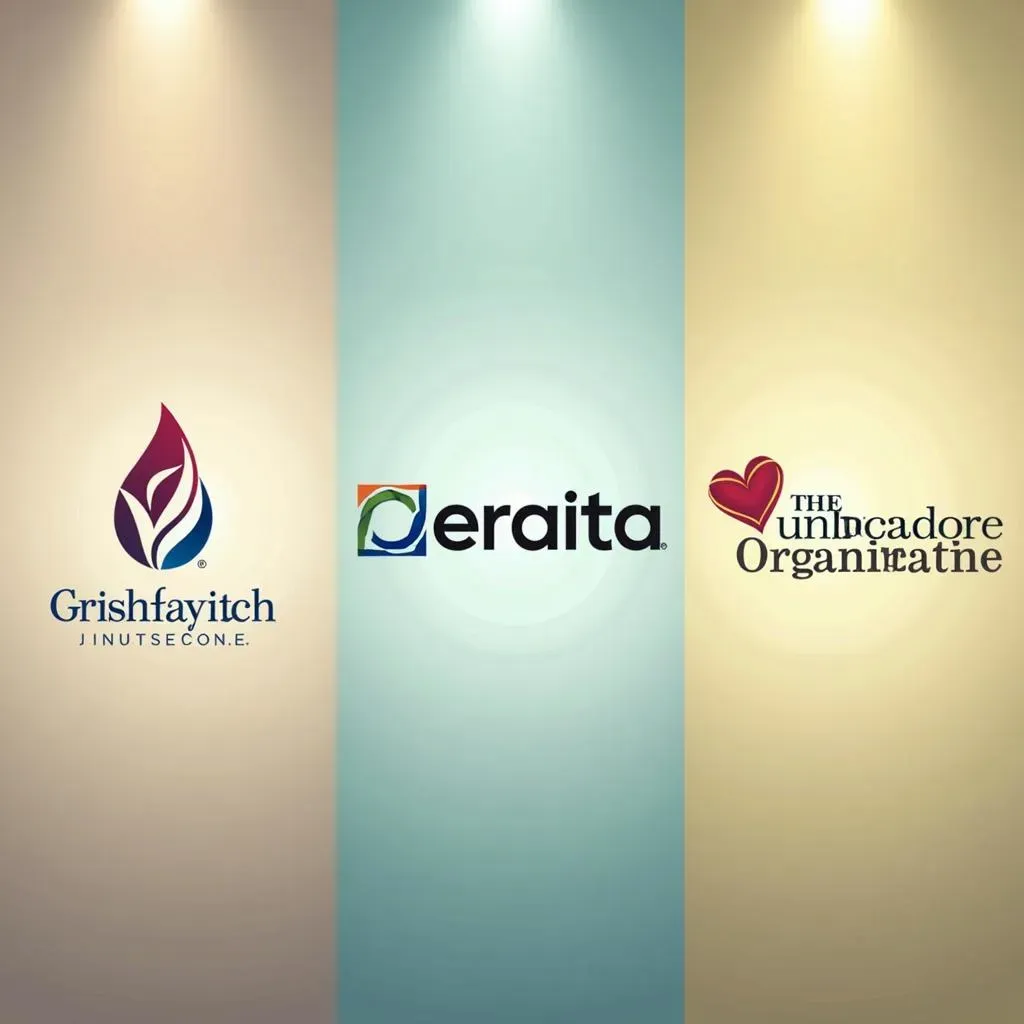Table of Contents
Thinking about giving back? It's awesome to want to support good causes! But how do you know if your donation is actually making a difference? That's where understanding 501(c)(3) status comes in. These special organizations are officially recognized by the government for their charitable work, and that recognition means something important for you and for them. In this article, we're going to break down what it means for a charity to be a 501(c)(3) organization and why that matters when you're choosing where to donate. We'll explore how you can spot the real deal and make sure your generosity goes to a trustworthy place. Plus, we will highlight 3 different charitable organizations that are 501(c)(3)s, each working hard in their own way to make the world a little better. Ready to become a savvy giver? Let's get started and learn how to make your charitable donations count!
Understanding 501(c)(3) Status for Charitable Organizations

Understanding 501(c)(3) Status for Charitable Organizations
What's the Deal with 501(c)(3)?
Ever heard someone say "501(c)(3)" and wondered what it meant? It sounds like a robot name, right? Actually, it's just a fancy code from the US government. Think of it like a special sticker that says "official charity." Basically, a 501(c)(3) organization is a group that's been given the thumbs up by the IRS – that's the tax people – as a legit non-profit. This means they're doing good stuff, not just trying to make money for themselves.
Why Should You Care About That Code?
so why does this 501(c)(3) thing matter to you? Well, a couple of big reasons. First, it means your donation might actually get to help people or causes instead of lining someone's pockets. These groups have to follow rules to keep that 501(c)(3) status, so there’s a bit more trust there. Second, and maybe even cooler, when you donate to a 501(c)(3), you often get a tax break! It's like the government is saying, "Hey, thanks for being generous, we'll give you a little something back."
Benefit of 501(c)(3) Status | Why it Matters to You |
|---|---|
Official Recognition as a Charity | More assurance your donation goes to a real cause. |
Tax-deductible Donations | You can lower your taxes while doing good. |
Accountability and Transparency | These organizations have rules to follow. |
Not All Charities Are the Same: Public vs. Private
Believe it or not, even within 501(c)(3)s, there are different types. The main ones are "public charities" and "private foundations." Public charities are usually what you picture when you think of a charity – they get their money from lots of people, maybe through donations or events. Think of your local food bank or animal shelter. Private foundations, on the other hand, often get their money from just one family or a small group. It's a bit like the difference between a community pool and someone's fancy backyard pool – both are pools, but one's way more exclusive.
Spotting the Real Deal: How to Identify Reputable 501(c)(3) Charitable Organizations

Spotting the Real Deal: How to Identify Reputable 501(c)(3) Charitable Organizations
Is This Charity For Real? Doing Your Homework
so 501(c)(3) status is a good sign, but it's not like a magic shield against bad guys. Just because a group has that stamp doesn't automatically mean they are amazing or even good at what they do. Think of it like this: getting a driver's license means you passed the test, but it doesn't mean you're suddenly a race car driver, right? You still gotta check under the hood a bit yourself. So, how do you figure out if a 501(c)(3) charity is actually on the up and up? Don't worry, it's not like you need to become a detective. There are some pretty easy ways to do a little background check and make sure your donation is going where it should.
Quick Checks for Charity Legitimacy
First off, the IRS has a tool called the "Tax Exempt Organization Search." Sounds official, and it is! You can type in the charity's name and see if they are really listed as a 501(c)(3). If they're not in that database, that's a red flag. It's like showing up to a party and not being on the guest list – awkward, and maybe you shouldn't be there. Also, most legit charities are happy to share information about what they do and how they spend their money. Look for a website. Does it look professional, or like it was made in someone's basement in 1998? Do they talk clearly about their mission? Do they show how they use donations? If it's all super vague or they avoid talking about money, that's another little alarm bell ringing.
Watch Out for These Red Flags
Be wary of charities that pressure you to donate right away. Real charities are grateful for donations, but they won't try to bully you into giving. Also, pay attention to how they contact you. Did you get a random phone call out of the blue? Or a super emotional email that feels a bit too much? Legit charities usually don't need to use those kinds of tricks. And finally, if a charity seems to spend more time and energy on fundraising than actually doing their charitable work, that's a problem. It's like a restaurant that spends more on advertising than on making good food – something's probably not right in the kitchen.
- No IRS Listing: Can't find them in the Tax Exempt Organization Search? Hmm...
- Shady Website (or no website): Looks unprofessional or doesn't explain much? Be cautious.
- Pressure Tactics: Making you feel super guilty or rushed to donate? Take a step back.
- Vague Mission: Hard to figure out exactly what they do? Clarity is key.
- Fundraising Obsessed: Seems like they care more about money than the cause? Not a good sign.
3 Diverse 501(c)(3) Charitable Organizations Making a Difference

3 Diverse 501(c)(3) Charitable Organizations Making a Difference
Charity: Water - Making Clean Water Happen
Ever stop to think how easy it is to get a glass of clean water? For many people around the world, it's not easy at all. They might have to walk miles to dirty water, which can make them really sick. That's where Charity: Water comes in. This 501(c)(3) is all about bringing clean and safe drinking water to people in developing countries. They're like water superheroes! They fund projects to build wells, set up water filtration systems, and teach communities how to keep their water clean for the long haul. What's cool about them is they are super transparent – they show you exactly where your money goes and how it helps. You can even see projects on a map and track their progress. Talk about knowing your donation is making waves!
Khan Academy - Free Education for Anyone, Anywhere
Remember that subject in school that just didn't click? Imagine if you had a teacher available anytime, anywhere, to explain it in a way that finally made sense. That's kind of the idea behind Khan Academy. This 501(c)(3) provides free online education to anyone in the world. Seriously, anyone. From math to science to history, they've got tons of lessons and practice exercises, and it's all free. It's like having a giant, awesome, free school on the internet. Khan Academy is a fantastic example of a public charity because they rely on donations from everyday people and big organizations to keep their virtual doors open and learning accessible for everyone, no matter their background or where they live. They believe everyone deserves a chance to learn, and that's pretty awesome.
World Wildlife Fund (WWF) - Protecting Animals and Our Planet
Love animals and want to make sure there's still a wild world to explore for future generations? Then check out the World Wildlife Fund, or WWF. Yep, it's the one with the panda logo! WWF is a global 501(c)(3) that works to protect endangered species and their habitats. They're like guardians of the natural world. From saving tigers and elephants to conserving forests and oceans, WWF tackles big environmental challenges all over the planet. They work with governments, communities, and businesses to find solutions that help both people and nature thrive. Donating to WWF is like giving a high-five to the planet and all its amazing creatures, helping to ensure they stick around for a long time.
Making Your Donations Count: Choose Wisely
So, you see, giving to charity isn't just about feeling good, it's also about being smart about where your money goes. Understanding the 501(c)(3) status is like having a secret decoder ring for the charity world. It helps you make sure your donation is going to a real, legit organization doing good work and not just disappearing into a black hole. By knowing what to look for and asking the right questions, you can be confident that your generosity is actually making a difference. Go forth and give, but give wisely!
